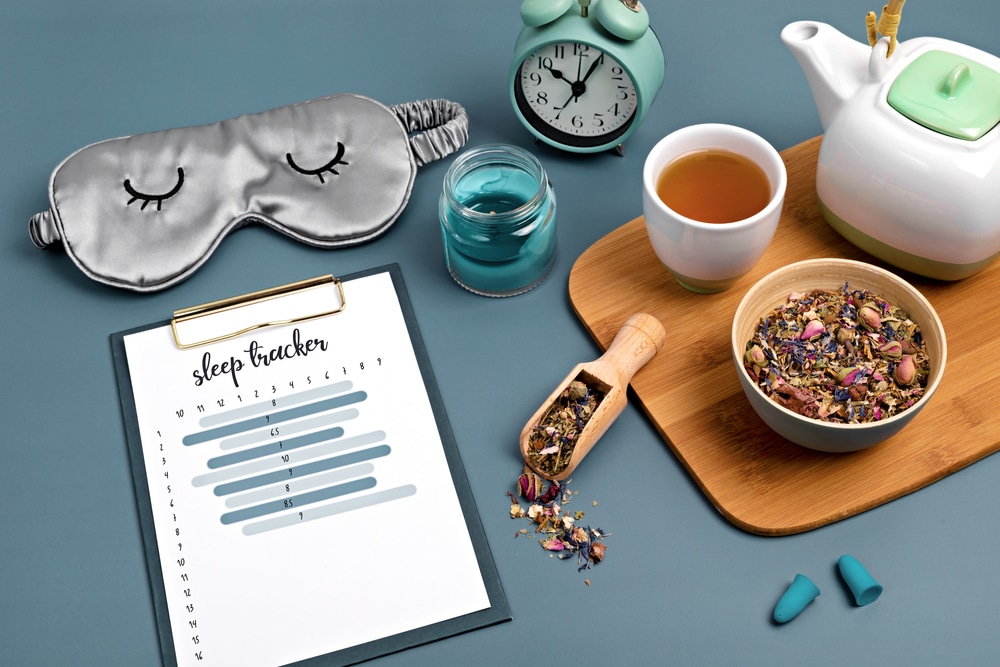Do you often find yourself feeling sluggish in the morning? Are you unmotivated at the start of your day, and lack the energy to take on whatever tasks await you? If so, then it’s time to create an evening routine that will give you the jumpstart you need for a productive morning. An evening routine is essential for setting yourself up for success – not just the next morning but also over the long term. It’s about creating healthy habits that foster physical and mental wellbeing, enabling us to be more alert when we wake up each day. In this article we’ll discuss why having an effective evening routine is important and how to put one together for maximum productivity come sunrise.
What Is An Evening Routine?
An evening routine is a series of activities, behaviors and rituals that you perform each day just before bedtime. It helps to transition your body and mind from being awake to sleeping, calming down the central nervous system in the process.
The goal of an evening routine is mainly two fold:
- To create a comfortable environment for sleeping.
- To prepare you for the next morning’s productivity.
This means that your evening routine should be tailored to your individual needs. It could involve anything from brushing your teeth before bedtime, reading a chapter in a book, or stretching out your muscles.
What Are The Benefits Of Having An Evening Routine?
Having an effective evening routine has several benefits, notably:
Regulating Your Circadian Rhythm
You’ve probably heard of your internal clock, or “circadian rhythm”. The best way to describe it is a biological clock that helps to regulate the day-night cycle, making you feel awake and alert during the day, and tired in the evening when it’s time to sleep (1).
It runs on a 24-hour basis and is largely affected by the amount of light you’re exposed to. It’s also affected by your environment and the activities — especially mental ones — you do in the evenings.
Your circadian rhythm has an enormous impact on your physical, mental and emotional wellbeing. If it becomes out of sync, then that can lead to significant issues such as insomnia, fatigue and depression. To keep this cycle in check it’s important to have a consistent evening routine.
An evening routine will do several things to help regulate your circadian rhythm:
- Reduce mental stimulation by avoiding screens, distracting activities and stressful conversations in the evening.
- Increase exposure to natural light during the day and decrease it at night. This will help your body recognize when it’s time to sleep.
- Incorporate relaxing activities before bed such as light stretching or reading, which can help you wind down for the night.
Read More: The Best Exercises To Include In A 5-Day Workout Routine For Women
Improving Sleep Quality And Quantity
Getting enough sleep is key, but it’s not just about quantity—the quality of your sleep matters too. People who consistently get adequate and restful sleep tend to be more productive and energetic throughout the day.
Adequate sleep, according to the National Sleep Foundation, is about 7 to 9 hours of uninterrupted sleep per night (3). Restful sleep involves falling asleep and staying asleep throughout the night.
Unfortunately, modern life can interfere with sleep quality. That’s why having an evening routine that allows you to transition into a relaxed state before bedtime is so important.
Stress Management
Ending your day on the couch binge-watching your favorite show can be enjoyable, but it may actually increase stress levels at night. That’s because the blue light from our screens decreases melatonin production — the hormone responsible for making us sleepy (2).
Stress is one of the worst enemies of productivity and overall health.
For one, it’s linked to a range of physical and mental issues such as insomnia, chronic fatigue, depression and anxiety (4). Not to mention that it can also lead to unhealthy lifestyle habits like overeating and drinking alcohol too often.
Having a calming evening routine is essential for managing stress levels.
Some activities release endorphins, which are the body’s “happy hormones”. Examples of these activities include yoga and mindfulness meditation. They can help you relax both mentally and physically before bedtime.
Improving Morning Productivity
There’s a good chance that how you end your day will shape the following morning. If you’re well-rested, your body and mind are more likely to be alert and productive when it’s time to get down to business.
Furthermore, starting the morning in a relaxed state can help ensure that you don’t rush, but instead take your time and begin the day with intention.
BetterMe app will provide you with a host of fat-frying fitness routines that’ll scare the extra pounds away and turn your body into a masterpiece! Get your life moving in the right direction with BetterMe!
How To Create A Good Evening Routine
Creating an effective evening routine requires some trial and error, but here are some tips to get you started:
Get A Head Start On Tomorrow
Start each evening by preparing for tomorrow. This process might look different for everyone, but it could involve:
- Cleaning up after dinner – do the dishes and put things away.
- Making a to-do list for the next day – even though you may not get to everything, it can help to have a plan.
- Planning out tomorrow’s meals – this will save time in the morning as you won’t have to think about what to make.
- Laying out your clothes for the next day – this will help save time so you can focus on other things.
Check In With Yourself
Take some time to get in touch with yourself by reflecting on the day. Reflecting on the day can help you gain insight into your thoughts, emotions and behavior. It can also give you a sense of appreciation for the experiences and lessons you’ve had.
Journaling is one way to reflect on the day. If you don’t feel like writing, a voice recording or simply talking to a friend can work too.
The questions below can help get you started:
- What went well today?
- What could have gone better?
- What did I learn?
- What am I grateful for?
- What can I do differently tomorrow?
Wind Down For Bedtime
Once you’ve reflected on the day, it’s important to start winding down for bedtime. Remember the circadian rhythm — the body’s natural clock that is affected by light, temperature and noise? Yeah, that plays a big role in how quickly you fall asleep and how deep your sleep is.
Also, beverages, food, and activities you do before bed can all affect how well you sleep. That’s why winding down an hour or two before you turn in is so important.
That means you should avoid activities like:
- Working on a laptop or using your phone until the last minute.
- Watching TV late into the night — especially if it’s a fast-paced show.
- Eating too close to bedtime — ideally, give yourself at least two hours after dinner before going to sleep.
- Drinking coffee or alcohol — caffeine and alcohol can disrupt your sleep cycle.
- Exercising, especially strenuous activities — exercise releases adrenaline and can make it harder to sleep.
Instead, opt for activities like:
- Reading – preferably paper books instead of digital screens.
- Gentle stretches and yoga – calming activities that get your body and mind ready for sleep.
- Meditation and deep breathing – practicing mindfulness can be a great way to relax before bed.
- Having a cup of herbal tea – chamomile and lavender are good options for relaxation.
- Connecting with a loved one – talking to someone can help you feel connected and loved.
- Journaling – it’s another form of reflection, but can also help with writing down your thoughts and worries.
- Sex and intimacy – if it’s something you share with a partner, it can be a great way to connect and relax. Plus, research shows that sex helps with better sleep.
- A warm bath or shower – an hour or so before bed can help you relax and get your body ready for sleep.
Read More: The Best Push Day Workout Routine For Toned Arms
Create An Enabling Environment
Finally, make sure your bedroom is set up for you to get the best sleep possible. That means:
- Making sure it’s dark – blackout curtains are a great option.
- Keeping it cool – ideally, the room should be between 65 and 72 degrees Fahrenheit.
- Removing distractions – if you can, turn off all electronic devices (TVs, phones, laptops) at least an hour before bed.
- Making sure it’s comfortable – invest in a mattress and pillows that work for you. The bedding and pajamas should be comfortable too.
- Using essential oils – some scents, like lavender, can help with sleeping better.
- Playing calming music – if you find it helpful, playing some calm folk, classical or ambient music can be beneficial.
- Ensuring it’s quiet – try using a noise machine if you live in an area with traffic or other loud noises.
Settle Down For Sleep
Sleeping should be automatic once you’ve created the enabling environment. If you’re still having difficulty sleeping, here are some things to try:
- Adhere to a sleep schedule – going to bed and waking up around the same time every day will help regulate your sleep rhythm.
- Don’t fight insomnia – if you find yourself awake in the middle of the night, don’t stress about it. Get out of bed and do something calming to help you relax.
- Keep a sleep diary – track your sleeping habits, such as the amount of time it takes to fall asleep and how many times you wake up during the night, in a notebook.
- Limit naps – try to limit daytime napping to one hour or less and avoid napping later than 3 pm.
- Try visualization or relaxation techniques – use breathing exercises or visualize a calming place that can help you relax.
Betterme will keep you laser-focused on your weight loss journey! Nutrient-packed meal plans, fat-blasting workouts, galvanizing challenges and much more. Try using the app and see for yourself!
What Time Should I Start An Evening Routine?
The ideal time to start your routine will depend on when you need to be up in the morning.
Starting this process too late can make it difficult to get enough sleep, so aim for an hour or two before your desired bedtime. For example, if you want to be asleep at 11 pm, start your routine at 9 pm or earlier.
A good way to determine when you should go to bed is to count backwards eight hours from when you need to get up. For example, if you have to be up by 6 am, aim for a bedtime of 10 pm. That means you should start your evening routine around 8 pm.
Final Thoughts
Having an evening routine is a great way to ensure that you’re getting enough restful sleep. Whether you’re just starting or looking to improve your existing routine, the key is to make sure that it works for you. There are lots of activities that can be included in a routine and not all will suit everyone. The tips in this article may be enough to help you create a routine that will lead to the best sleep possible and optimize your productivity in the morning.
DISCLAIMER:
This article is intended for general informational purposes only and does not address individual circumstances. It is not a substitute for professional advice or help and should not be relied on to make decisions of any kind. Any action you take upon the information presented in this article is strictly at your own risk and responsibility!
SOURCES:
- Circadian Rhythms (n.d., nih.gov)
- How Blue Light Affects Sleep (2023, sleepfoundation.org)
- How Much Sleep Do We Really Need? (2023, sleepfoundation.org)
- STRESS AND HEALTH: Psychological, Behavioral, and Biological Determinants (2008, nih.gov)


















